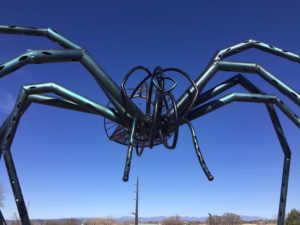By Paul Braverman for Finance New Mexico
When the educational and networking nonprofit Coronado Ventures Forum (CVF) launched in 1994, most professional equity investments in New Mexico were being made in lab spin-off companies — those formed to commercialize technology developed at one of the state’s two national laboratories. CVF brought California-based venture capitalists to New Mexico to impart knowledge and best practices to neophyte investors and entrepreneurs.
Twenty-three years later, the organization is still focused on education and building the state’s entrepreneurial ecosystem, but like many of the entities it helps, CVF has stayed relevant by responding to a changing environment.
Today, talk is about the creative class, creative economies and creative entrepreneurship — defined by a 2013 UNESCO report as fields that produce “commercial outputs that possess a high degree of expressive value and invoke copyright protection.” Besides scientists and engineers, this innovative creative class includes people in design, education and the arts.
From the start of CVF’s most recent educational and networking session, it was clear that CVF is responding to this new creative community. Instead of a buffet-flanked meeting room at a golf-club restaurant, the packed-to-bursting event was held at the conceptual riot that is Meow Wolf, an interactive installation created by an artists’ collaborative in a former Santa Fe bowling alley.
Most attendees were in their 30s, but they spoke like Silicon Valley veterans, using terms like artificial intelligence, burn rate, and deep learning.
A smaller, but significant, number had blue stars on their name tags, gray hair on their heads and ties around their necks. These were the men with money.
Perhaps Amanda Solonsky best represented the new landscape. Solonsky’s Rio Rancho-based company, Rival Theory, Inc., is an artificial intelligence (AI) company with a vision to transform entertainment and learning through interactive characters that have human traits such as thinking, memory and emotion. The company has set its sights on working with Hollywood studios and education companies such as Sesame Street. Solonsky and co-founder Bill Klein are graduates of the world-class accelerator Techstars.
Vince Kadlubek, a Meow Wolf founder and panelist at the CVF event, described the success of his organization’s Santa Fe installation that has gained national attention. Responding to a question about the difference between raising money for an early-stage creative organization and fundraising for a more established venture, he said, “At first, it seemed to matter whether the investors liked me or not, whether they liked the idea. Now they want to see numbers.” Kadlubek plans to expand Meow Wolf to Austin, TX, but he’s also talking with investors in Denver and Houston.
Panelists demonstrated a clear understanding of the local capital and entrepreneurial environment. Francine Sommer, a veteran CVF presenter and investor with Village Ventures said of the advantages and disadvantages of being in New Mexico that “being isolated makes you think differently. If you’ve been to New York or Los Angeles, you know what works there is not going to work here.”
CVF meets every other month in Albuquerque or Santa Fe. Learn more at http://www.cvf-nm.org.
Download 501_New Mexico Capital Connector Responds to a New Environment PDF

